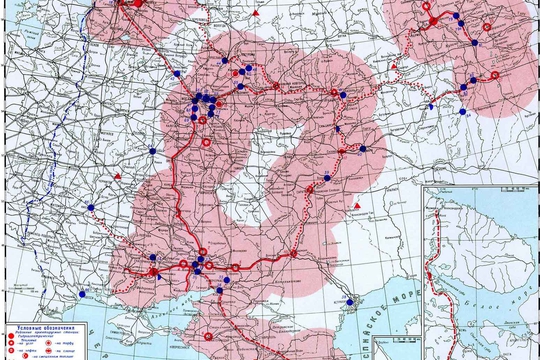The Class Composition Project
by
Notes from Below (@NotesFrom_Below)
February 16, 2021
Featured in The Class Composition Project (#16)
An open invitation to participate in a new collaborative inquiry

inquiry
The Class Composition Project
by
Notes from Below
/
Feb. 16, 2021
in
The Class Composition Project
(#16)
An open invitation to participate in a new collaborative inquiry
Notes from Below is today launching a new project to analyse the changes in work and the working class in contemporary Britain, based on a collective research process led by workplace militants. To get involved, sign up with your email address through the form below.
<form style="border:1px solid #ccc;padding:3px;text-align:center;" action="https://tinyletter.com/NotesfromBelow" method="post" target="popupwindow" onsubmit="window.open('https://tinyletter.com/NotesfromBelow', 'popupwindow', 'scrollbars=yes,width=800,height=600');return true"></form>Essential Work, Essential Workers
The outbreak of the COVID-19 pandemic has deeply shaped the last year. The pandemic has its roots in industrial, mass agricultural production. Its impact has accelerated the global economic crisis, highlighting existing inequalities. At the same time, it identified the sectors of the economy which governments would not - or could not - shut down. So-called “essential workers” had to continue to work. Through lockdowns, these workers had to risk their health and that of their communities to keep society running. This was an important reminder of workers continuing importance to capitalism. It was also an illustration of the disregard the ruling class has for workers.
In the UK, these “essential” sectors cover how society is reproduced, including education, healthcare, care work. It also covers sectors such as construction agriculture, logistics, and trade. For whitecollar workers to be able to stay home and work online, warehouse and delivery workers needed to work overtime. The crisis identified then, for all to see, the sectors needed to avoid total collapse. The government sang the praises of our “heroes”, but did not provide the protection, pay, or resources necessary to carry out hero’s work. Despite this, workers stepped up to respond to the crisis. The question ahead is how working class militants and socialists will be able to use the insights gained through these struggles. Will this equip us to turn the crisis against those who rule and exploit us?
Notes from Below published two issues which engaged with these questions in the last year. Struggle in a Pandemic focused on the international context, through collaboration with comrades in Brazil, France, Belgium, the US and Italy. From the Workplace covered experiences of workers in 12 different industries in the UK. The second began as a workers’ inquiry project before the pandemic, but was, inevitably, changed by it. It gave us a first taste of what an analysis of workers’ experience during the crisis could show. This covered the current issues faced in workplaces up and down the country, with how workers have started responding. It is this process which we now want to take further and expand. We want to start drawing up a clearer picture of the contemporary shape of labour in the UK. Our starting point is these newly identified “essential” sectors, then expanding to the working class as a whole.
It is a project that we hope you will support and engage with.
<form style="border:1px solid #ccc;padding:3px;text-align:center;" action="https://tinyletter.com/NotesfromBelow" method="post" target="popupwindow" onsubmit="window.open('https://tinyletter.com/NotesfromBelow', 'popupwindow', 'scrollbars=yes,width=800,height=600');return true"></form>Class Analysis, Class Struggle
At the most basic level, socialism flows from the activity of the working class and its collective self-emancipation. The struggles of those who produce and reproduce society and its wealth are key to this process. These struggles lay the basis for short-term improvements, but also for an alternative to capitalism. As socialists, we focus on the working class as the collective agent that can fight for this liberation. We need to analyse our collective power. This starts from the strategic and collective position as the sole producer of value.
At Notes from Below, we recognise this reality and strive to develop an analysis that starts from this point. We need to understand how the ruling class continues to dominate society. This means unpicking how the working class resistance has been weakened and divided. We believe the answer to our current situation is not less, but more class based theory and praxis. The reactionary politics of sections of the labour movement on questions of immigration, state repression, or sexism do not - in our view - emerge from an exaggerated or exclusive focus on class. Instead, they are a failure to develop an extensive analysis of contemporary class relations.
<form style="border:1px solid #ccc;padding:3px;text-align:center;" action="https://tinyletter.com/NotesfromBelow" method="post" target="popupwindow" onsubmit="window.open('https://tinyletter.com/NotesfromBelow', 'popupwindow', 'scrollbars=yes,width=800,height=600');return true"></form>Defeat and its Consequences
Many of the shortcomings of the labour movement emerge from a failure to account for the changes in contemporary class relations. Our recent history is full of attacks aiming to undermine working class power. Analysis of this often involves quite general statements. For example, about the defeat of the workers’ movement. Sometimes this covers the internationalisation of capital, the future of work, or so on. Often this leads to vague claims which fail to identify specific strategic focuses. There is no substitute for a careful and systematic analysis of contemporary class relations. Of course, this must involve understanding how capital and work has changed. At its core, it must focus on workers’ experience of these changes. This is a starting point for how to organise against this reality - and tear it down.
This work has long been ignored by the left and the labour movement in Britain. There are many important questions left unanswered. For example:
-
What are the key sectors for capital in the UK?
-
Which section of the working class are best placed to disrupt these?
-
Who makes up the working class in Britain?
-
Where do they work and how?
-
What are the levels of (dis)organisation of the labour movement?
-
How does this map on different sectors and sections of the workforce?
-
What are key tools used by bosses to control workers?
-
How do they resist this?
These questions have been of only minor interest in socialist debate. It is to these questions which Notes from Below proposes to focus on in the time ahead.
<form style="border:1px solid #ccc;padding:3px;text-align:center;" action="https://tinyletter.com/NotesfromBelow" method="post" target="popupwindow" onsubmit="window.open('https://tinyletter.com/NotesfromBelow', 'popupwindow', 'scrollbars=yes,width=800,height=600');return true"></form>A New Project
At Notes from Below we believe this is an urgent task. If we are to make sense of our current moment and move beyond it, we need to start here. This means a collective process of militant-led analysis that focuses on these questions. We want to identify the shape of the working class in the UK today, particularly after COVID-19. The aim is to identify focuses for organising and resistance.
In the months ahead, we will hold a series of collective discussions. We invite workers from different industries to contribute their experiences. Each session will draw out the way different sectors are changing. Through inquiry, these aim to identify the challenges and opportunities for collective organising. We will start with the “essential” sectors identified during the pandemic. Future sessions will not be limited to this, but instead use it as a starting point. As we go along, we will publish collectively written pieces, worker writing, and reports on the discussions. We aim to be able to publish a first overview of these meetings, reports, and pieces at the end of the summer. At the same time, we expect this process to continue to run well beyond this time also.
While we have started the process, we do not believe that we will be able to do this on our own. This is a call to all those who share our concerns and aims. We invite you to take part in this process alongside us. This can involve joining the discussions, sharing resources, or submitting writing. We are - as always - particularly keen for workers themselves to get involved. The experience of work matters. We also invite activists involved in organising at the point of production and in working class neighbourhoods. The project needs new analysis of capital and class, from sector, workplace, and community-based investigations. We look forward to reading your thoughts and aim to compile submissions on our website. Our hope is to collectively produce an overall analysis of contemporary class composition in Britain. This will be the start of a collective plan for how we rebuild working class power from below.
Join us.
<form style="border:1px solid #ccc;padding:3px;text-align:center;" action="https://tinyletter.com/NotesfromBelow" method="post" target="popupwindow" onsubmit="window.open('https://tinyletter.com/NotesfromBelow', 'popupwindow', 'scrollbars=yes,width=800,height=600');return true"></form>Featured in The Class Composition Project (#16)
author
Notes from Below (@NotesFrom_Below)
Subscribe to Notes from Below
Subscribe now to Notes from Below, and get our print issues sent to your front door three times a year. For every subscriber, we’re also able to print a load of free copies to hand out in workplaces, neighbourhoods, prisons and picket lines. Can you subscribe now and support us in spreading Marxist ideas in the workplace?
Read next

Introduction to the Class Composition Project
by
Notes from Below
/
March 21, 2023

